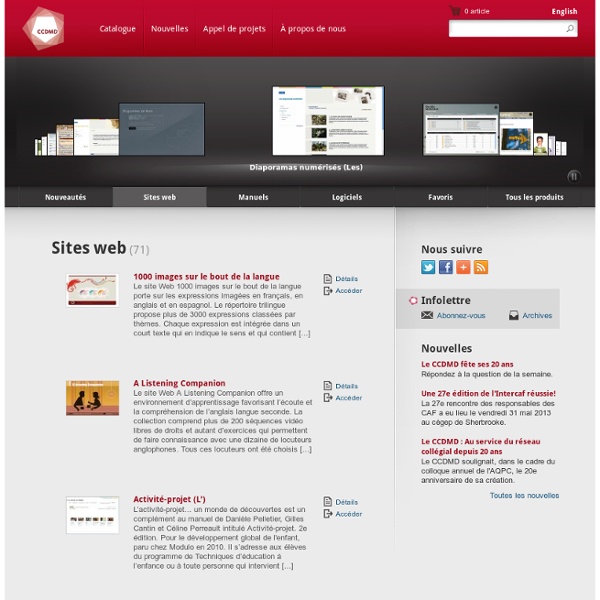



Maps Utilisateurs de lecteur d'écran : cliquez ici pour passer en HTML. +Vous Recherche Images Maps Play YouTube Actualités Gmail Documents Agenda Plus Traduction Livres Blogger Reader Photos Vidéos Encore plus Account Options Connexion Obtenir l’itinéraire Mes adresses Satellite Trafic Météo Relief Quitter Données cartographiques ©2012 Google - 500 km 200 miles Canada Pas votre position actuelle? Google Maps disponible en : English Référencez votre entreprise sur Google Maps Laboratoires Maps - Aide Google Maps - ©2012 Google - Conditions d'utilisation - Confidentialité Pour restituer le niveau de détail visible à l'écran, cliquez sur le lien Imprimer à côté de la carte.
Hot Potatoes Home Page News - 2022-03-11 The downloads for Hot Potatoes version 6 have all been removed. This is because that version has an obsolete facility for uploading files to the old hotpotatoes.net service, which no longer exists, and we would like to encourage all users to move to version 7 as soon as possible.A minor update to Hot Potatoes (version 7.0.3.0) has been released. This removes references to the HTML non-breaking-space entity which is no longer defined in HTML5. What is Hot Potatoes? The Hot Potatoes suite includes six applications, enabling you to create interactive multiple-choice, short-answer, jumbled-sentence, crossword, matching/ordering and gap-fill exercises for the World Wide Web. Downloads Download Hot Potatoes for Windows from here: Hot Potatoes 7.0 installer (Hot Potatoes version 7.0.3.0 for Windows 98/ME/NT4/2000/XP/Vista/7/8/8.1/10 as well as Linux under Wine). When you first start up Hot Potatoes, it will ask you for your user name.
Le compagnon.info - formation en ligne
Ce site québecois nous donnes accès à plusieurs applications en ligne. Cela nous permet d'avoir accès à de nombreux sites intéressant. En passant par une application sur l'amélioration du français par une autre sur la création de réseau de concepts. by maudepelletier Mar 6